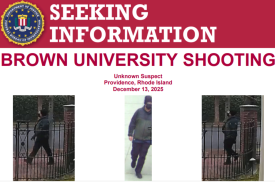NCAA Avoids Trial With Sam Keller Plaintiffs, Settling for $20 Million Over Video Game Lawsuit
ByFor the second time in two weeks, a group of former college athletes have reached a video-game-related settlement for several millions of dollars.
According to the Associated Press, the NCAA settled with a group of former college athletes led by Sam Keller, who played quarterback at Arizona State. The settlement will award $20 million to various current and former college basketball and football players featured in EA Sports' video games.
U.S. District Court Judge Claudia Wilken previously split Keller's case from that of Ed O'Bannon, a former UCLA basketball player. After five years of legal maneuvers and delays, O'Bannon's case officially went to trial Monday, the same day as the NCAA's settlement with Keller.
Keller's case was supposed to go to trial in March 2015, but the settlement leaves the NCAA to battle O'Bannon alone. O'Bannon originally sued the NCAA, EA Sports and Collegiate Licensing Company (CLC) for using his name, image and likeness without any compensation. Wilken later separated Keller from O'Bannon's case so it could only focus on college athletes' images being used in video games.
EA Sports and CLC finalized their settlement at the end of May and disclosed they would pay the plaintiffs $40 million, ESPN's "Outside the Line" (OTL) reported. A portion of that settlement, plus the latest one, will go toward current and former college athletes depending on the degree of their involvement in the video games.
The AP reported last week that the NCAA will not penalize current athletes for accepting their piece of the settlement. The NCAA strictly prohibits its athletes from accepting any form of payment, necessitating special permission for the settlement.
The NCAA was sure to remind everyone the settlement payments would not equate payment for on-field performance in a specifically worded statement.
"Under no circumstances will we allow the proposed agreement between EA and plaintiff's lawyers to negatively impact the eligibility of any student-athlete. Not one will miss a practice or a game if this settlement is approved by the court," the NCAA said last week. "This proposed settlement does not equate to payment of current student-athletes for their athletic performance, regardless of how it is being publicly characterized."
© 2025 University Herald, All rights reserved. Do not reproduce without permission.








